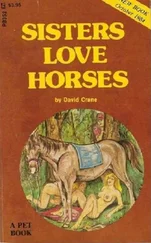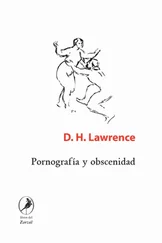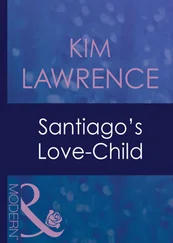David Lawrence - Women in Love
Здесь есть возможность читать онлайн «David Lawrence - Women in Love» весь текст электронной книги совершенно бесплатно (целиком полную версию без сокращений). В некоторых случаях можно слушать аудио, скачать через торрент в формате fb2 и присутствует краткое содержание. Год выпуска: 2003, Жанр: Классическая проза, Современные любовные романы, на английском языке. Описание произведения, (предисловие) а так же отзывы посетителей доступны на портале библиотеки ЛибКат.
- Название:Women in Love
- Автор:
- Жанр:
- Год:2003
- ISBN:нет данных
- Рейтинг книги:3 / 5. Голосов: 1
-
Избранное:Добавить в избранное
- Отзывы:
-
Ваша оценка:
- 60
- 1
- 2
- 3
- 4
- 5
Women in Love: краткое содержание, описание и аннотация
Предлагаем к чтению аннотацию, описание, краткое содержание или предисловие (зависит от того, что написал сам автор книги «Women in Love»). Если вы не нашли необходимую информацию о книге — напишите в комментариях, мы постараемся отыскать её.
Women in Love — читать онлайн бесплатно полную книгу (весь текст) целиком
Ниже представлен текст книги, разбитый по страницам. Система сохранения места последней прочитанной страницы, позволяет с удобством читать онлайн бесплатно книгу «Women in Love», без необходимости каждый раз заново искать на чём Вы остановились. Поставьте закладку, и сможете в любой момент перейти на страницу, на которой закончили чтение.
Интервал:
Закладка:
'So you'd like everybody in the world destroyed?' said Ursula.
'I should indeed.'
'And the world empty of people?'
'Yes truly. You yourself, don't you find it a beautiful clean thought, a world empty of people, just uninterrupted grass, and a hare sitting up?'
The pleasant sincerity of his voice made Ursula pause to consider her own proposition. And really it WAS attractive: a clean, lovely, humanless world. It was the REALLY desirable. Her heart hesitated, and exulted. But still, she was dissatisfied with HIM.
'But,' she objected, 'you'd be dead yourself, so what good would it do you?'
'I would die like a shot, to know that the earth would really be cleaned of all the people. It is the most beautiful and freeing thought. Then there would NEVER be another foul humanity created, for a universal defilement.'
'No,' said Ursula, 'there would be nothing.'
'What! Nothing? Just because humanity was wiped out? You flatter yourself. There'd be everything.'
'But how, if there were no people?'
'Do you think that creation depends on MAN! It merely doesn't. There are the trees and the grass and birds. I much prefer to think of the lark rising up in the morning upon a human-less world. Man is a mistake, he must go. There is the grass, and hares and adders, and the unseen hosts, actual angels that go about freely when a dirty humanity doesn't interrupt them—and good pure-tissued demons: very nice.'
It pleased Ursula, what he said, pleased her very much, as a phantasy. Of course it was only a pleasant fancy. She herself knew too well the actuality of humanity, its hideous actuality. She knew it could not disappear so cleanly and conveniently. It had a long way to go yet, a long and hideous way. Her subtle, feminine, demoniacal soul knew it well.
'If only man was swept off the face of the earth, creation would go on so marvellously, with a new start, non-human. Man is one of the mistakes of creation—like the ichthyosauri. If only he were gone again, think what lovely things would come out of the liberated days;—things straight out of the fire.'
'But man will never be gone,' she said, with insidious, diabolical knowledge of the horrors of persistence. 'The world will go with him.'
'Ah no,' he answered, 'not so. I believe in the proud angels and the demons that are our fore-runners. They will destroy us, because we are not proud enough. The ichthyosauri were not proud: they crawled and floundered as we do. And besides, look at elder-flowers and bluebells—they are a sign that pure creation takes place—even the butterfly. But humanity never gets beyond the caterpillar stage—it rots in the chrysalis, it never will have wings. It is anti-creation, like monkeys and baboons.'
Ursula watched him as he talked. There seemed a certain impatient fury in him, all the while, and at the same time a great amusement in everything, and a final tolerance. And it was this tolerance she mistrusted, not the fury. She saw that, all the while, in spite of himself, he would have to be trying to save the world. And this knowledge, whilst it comforted her heart somewhere with a little self-satisfaction, stability, yet filled her with a certain sharp contempt and hate of him. She wanted him to herself, she hated the Salvator Mundi touch. It was something diffuse and generalised about him, which she could not stand. He would behave in the same way, say the same things, give himself as completely to anybody who came along, anybody and everybody who liked to appeal to him. It was despicable, a very insidious form of prostitution.
'But,' she said, 'you believe in individual love, even if you don't believe in loving humanity—?'
'I don't believe in love at all—that is, any more than I believe in hate, or in grief. Love is one of the emotions like all the others—and so it is all right whilst you feel it But I can't see how it becomes an absolute. It is just part of human relationships, no more. And it is only part of ANY human relationship. And why one should be required ALWAYS to feel it, any more than one always feels sorrow or distant joy, I cannot conceive. Love isn't a desideratum—it is an emotion you feel or you don't feel, according to circumstance.'
'Then why do you care about people at all?' she asked, 'if you don't believe in love? Why do you bother about humanity?'
'Why do I? Because I can't get away from it.'
'Because you love it,' she persisted.
It irritated him.
'If I do love it,' he said, 'it is my disease.'
'But it is a disease you don't want to be cured of,' she said, with some cold sneering.
He was silent now, feeling she wanted to insult him.
'And if you don't believe in love, what DO you believe in?' she asked mocking. 'Simply in the end of the world, and grass?'
He was beginning to feel a fool.
'I believe in the unseen hosts,' he said.
'And nothing else? You believe in nothing visible, except grass and birds? Your world is a poor show.'
'Perhaps it is,' he said, cool and superior now he was offended, assuming a certain insufferable aloof superiority, and withdrawing into his distance.
Ursula disliked him. But also she felt she had lost something. She looked at him as he sat crouched on the bank. There was a certain priggish Sunday-school stiffness over him, priggish and detestable. And yet, at the same time, the moulding of him was so quick and attractive, it gave such a great sense of freedom: the moulding of his brows, his chin, his whole physique, something so alive, somewhere, in spite of the look of sickness.
And it was this duality in feeling which he created in her, that made a fine hate of him quicken in her bowels. There was his wonderful, desirable life-rapidity, the rare quality of an utterly desirable man: and there was at the same time this ridiculous, mean effacement into a Salvator Mundi and a Sunday-school teacher, a prig of the stiffest type.
He looked up at her. He saw her face strangely enkindled, as if suffused from within by a powerful sweet fire. His soul was arrested in wonder. She was enkindled in her own living fire. Arrested in wonder and in pure, perfect attraction, he moved towards her. She sat like a strange queen, almost supernatural in her glowing smiling richness.
'The point about love,' he said, his consciousness quickly adjusting itself, 'is that we hate the word because we have vulgarised it. It ought to be prescribed, tabooed from utterance, for many years, till we get a new, better idea.'
There was a beam of understanding between them.
'But it always means the same thing,' she said.
'Ah God, no, let it not mean that any more,' he cried. 'Let the old meanings go.'
'But still it is love,' she persisted. A strange, wicked yellow light shone at him in her eyes.
He hesitated, baffled, withdrawing.
'No,' he said, 'it isn't. Spoken like that, never in the world. You've no business to utter the word.'
'I must leave it to you, to take it out of the Ark of the Covenant at the right moment,' she mocked.
Again they looked at each other. She suddenly sprang up, turned her back to him, and walked away. He too rose slowly and went to the water's edge, where, crouching, he began to amuse himself unconsciously. Picking a daisy he dropped it on the pond, so that the stem was a keel, the flower floated like a little water lily, staring with its open face up to the sky. It turned slowly round, in a slow, slow Dervish dance, as it veered away.
He watched it, then dropped another daisy into the water, and after that another, and sat watching them with bright, absolved eyes, crouching near on the bank. Ursula turned to look. A strange feeling possessed her, as if something were taking place. But it was all intangible. And some sort of control was being put on her. She could not know. She could only watch the brilliant little discs of the daisies veering slowly in travel on the dark, lustrous water. The little flotilla was drifting into the light, a company of white specks in the distance.
Читать дальшеИнтервал:
Закладка:
Похожие книги на «Women in Love»
Представляем Вашему вниманию похожие книги на «Women in Love» списком для выбора. Мы отобрали схожую по названию и смыслу литературу в надежде предоставить читателям больше вариантов отыскать новые, интересные, ещё непрочитанные произведения.
Обсуждение, отзывы о книге «Women in Love» и просто собственные мнения читателей. Оставьте ваши комментарии, напишите, что Вы думаете о произведении, его смысле или главных героях. Укажите что конкретно понравилось, а что нет, и почему Вы так считаете.











